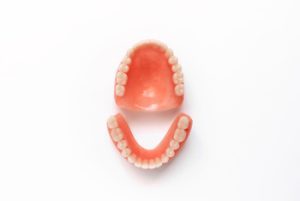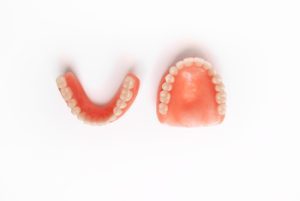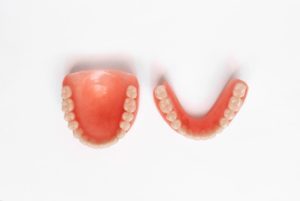Are Dentures Comfortable? Discover the Truth And Insights

Dentures play a crucial role in oral health, as they replace missing or damaged teeth. Whether they are partial or complete, dentures can restore a smile and improve the way you eat. But the key question is, are they comfortable to wear? We will explore the various types of modern dentures and if they are comfortable to wear.
How Do Dentures Work?
Dentures work by replacing missing natural teeth. If you have some natural teeth left, partial dentures fit around them, while complete dentures use suction to stay in place on the gums. Over time, the dentures become custom fit to your mouth, which helps with their comfort level. If you have dental implants, implant-supported dentures can snap onto the implants, providing a sturdy hold while reducing the pressure on your gums.
How Do Dentures Feel Like?
When you first start wearing dentures, it’s common to experience some discomfort, but this should subside within a few weeks as you get used to them.
 Dentures are designed to be as comfortable as possible, with a customised fit that matches your mouth’s shape.
Dentures are designed to be as comfortable as possible, with a customised fit that matches your mouth’s shape.
However, they can still put pressure on your gums, and it can take some time to adjust to the sensation of wearing dentures. It is crucial to have routine dental check-ups to ensure your dentures are fitted properly and avoid any problems with adjacent teeth.
Types of Modern Dentures
There are two types of modern dentures: partial and complete. If a patient has some natural teeth remaining, partial dentures are used, whereas full dentures are used when all natural teeth are missing.
Partial dentures are designed to fit between remaining teeth to fill gaps where teeth are missing. They are usually made of a combination of metal and plastic materials. This type of denture is comfortable to wear as it creates a balance between natural and replacement teeth, making them effective in speaking and eating.
On the other hand, complete dentures replace all teeth in the arch, meaning they remove any remaining teeth. They are also made of a combination of acrylic and plastic. Because they replace an entire arch, it can take some time for an individual to get used to them.
Are Dentures Comfortable To Wear?
One primary concern of the patients is the comfort of wearing dentures. It takes some time to adjust to wearing dentures, and it is normal to feel discomfort initially. However, modern dentures are made to fit comfortably and feel more natural in the mouth.
Dentists will work with patients to ensure their dentures fit correctly and adequately. Proper dental care and hygiene also play a role in keeping your dentures comfortable.
Different Factors that Affect Denture Comfort
One of the most crucial factors that affect denture comfort for denture wearers is the fit of their dentures. Poorly fitting dentures can lead to discomfort and irritation, making eating and speaking properly challenging. Other factors contributing to discomfort include changes in oral tissue, diet, and health conditions.
However, denture adhesive plays a significant role in increasing the denture wearer’s comfort. Denture adhesives are products used to keep dentures secure in the mouth and provide a more comfortable fit. They create a seal between the gums and dentures, which reduces the movement of dentures and prevents irritation. Using an appropriate amount of denture adhesive can make a significant difference, as too much can cause discomfort, and too little can fail to provide adequate support. Choosing the right type of denture adhesive for individual needs, such as ease of application and flavour preferences, is essential.
Poorly Fitted or Ill-Fitting Dentures
Unsurprisingly, poorly fitting dentures can be a major source of discomfort. When false teeth don’t fit properly, they can cause many problems, from sore spots to difficulty speaking and eating. Ill-fitting prosthetic teeth can even shift or fall out during normal activities like talking or laughing.
Unfortunately, many people with dentures suffer in silence, not realising that their discomfort can often be resolved with a simple adjustment or re-fitting. That’s why talking to your dentist about any issues you’re experiencing with your dentures is important. With the right care and attention, your false teeth can fit comfortably and securely, so you can return to enjoying your daily activities confidently.
Are Implant Retained Dentures More Comfortable?
Implant-retained dentures are a great option for those who want a more comfortable and secure fit than traditional dentures.
 Implant-retained dentures use two or more dental implants to hold them in place, meaning they don’t rely on suction for stability. This type of prosthetic tooth is also less likely to move around in the mouth, resulting in greater comfort and a better overall fit. Implant-retained dentures are also designed to look more natural and feel just like real teeth, making them an excellent option for those looking for the best possible fit and comfort.
Implant-retained dentures use two or more dental implants to hold them in place, meaning they don’t rely on suction for stability. This type of prosthetic tooth is also less likely to move around in the mouth, resulting in greater comfort and a better overall fit. Implant-retained dentures are also designed to look more natural and feel just like real teeth, making them an excellent option for those looking for the best possible fit and comfort.
Oral Health and Adjacent Teeth
When it comes to dental health, missing teeth can lead to a host of problems if left unaddressed. Fortunately, dentures offer a solution to tooth loss’s aesthetic and functional challenges. Beyond enhancing your smile and ability to speak and eat, dentures can also benefit your oral health and adjacent teeth. By restoring proper alignment and bite, your remaining teeth will experience less wear and tear. Additionally, dentures help maintain your jawbone’s structure, which can degrade if teeth are missing over time. Investing in dentures is a valuable way to enhance your oral health and quality of life.
What to Consider When Choosing The Right Denture?
Choosing the right denture can be daunting, especially when you have one or a few missing teeth. Your new dentures must fit comfortably and function like your natural teeth. Before selecting a denture, consider the type that will suit your needs, your budget, and the quality of the material. Factors such as age, lifestyle, and general health can also affect your choice of dentures. Dentures can be custom-made to fit your mouth, or they can be prefabricated. Whichever you choose, your new dentures must provide both function and aesthetics. With the right guidance from your dentist, you can select the denture that is best suited for you and your unique circumstances.
Tips For Wearing Dentures and How to Achieve Maximum Comfort
- Clean your dentures thoroughly daily with a soft-bristled brush and denture cleaner to remove food particles and prevent bacteria buildup.

- Soak your dentures in a special solution when not used or overnight to keep them moist and prevent them from warping or cracking.
- Avoid using hot water or abrasive cleaning materials that could damage your dentures.
- Practise speaking and eating with your dentures before going out in public to build confidence and avoid embarrassing mishaps.
- Avoid chewing gum or sticky foods that can stick to your dentures and cause discomfort or damage.
- Be aware of changes in the fit of your dentures over time, and visit your dentist regularly for adjustments or denture replacement as needed.
Conclusion
Dentures are vital in replacing missing teeth, improving overall oral health, and restoring confidence by improving your appearance. Partial dentures and complete dentures are designed to be comfortable to wear. While there may be an adjustment period, with proper dental care and hygiene, dentures can offer a comfortable option for individuals with missing teeth. Discussing your options with a dentist to gain more insights is best so you choose the best dentures for your specific needs.
If you’re looking for high-quality dentures, look no further than My Local Dentists. Our professional team of dentists is dedicated to providing personalised care to help you achieve your perfect smile.
Please don’t wait any longer to restore your smile; choose My Local Dentists today. Call us at:
Burwood: (02) 9000 1239
Northmead: (02) 9000 1383
West Ryde: (02) 9000 1305
Leichhardt: (02) 9100 0381
Northbridge: (02) 8318 5966
References
Dentures: Types (Partial and Complete), Cost, Cleaning, and More
https://www.webmd.com/oral-health/dental-health-dentures
What Are Dentures? Types, Care & Benefits
https://my.clevelandclinic.org/health/articles/10900-dentures
Dentures: Types, Costs & Alternatives
https://www.medicinenet.com/dentures/article.htm
